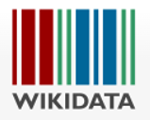PANÓPTICO DIGITAL E TRANSUMANISMO: A VIGILÂNCIA E O CONTROLE SOCIAL NA ERA DAS NOVAS TECNOLOGIAS
DIGITAL PANOPTICON AND TRANSHUMANISM: SURVEILLANCE AND SOCIAL CONTROL IN THE AGE OF NEW TECHNOLOGIES
DOI:
https://doi.org/10.33362/juridico.v13i2.3409Resumo
Este artigo objetiva estudar os aspectos e as características do controle, da dominação e da vigilância na sociedade do digital, das novas tecnologias e da imersão no virtual com excessivas exposição e exibição. Parte da hipótese de que o desenvolvimento desenfreado das máquinas inteligentes pode conduzir ao estágio futuro pós-humano, sobretudo, transumanista, aleijando-se privacidade e autonomia individuais. Seus objetivos específicos são: i) estudar estruturas de vigilância, com ênfase na arquitetura panóptica do poder (Bentham, Foucault) e suas abordagens mais recentes; ii) expor a ascensão e os impactos das novas tecnologias, especialmente das técnicas de big data, dos algoritmos e da IA no contexto da vigilância. Como resultado, conclui-se que, com a inconsequente evolução tecnológica, desenvolvem-se grandes riscos de perda permanente do autocontrole humano, bem como das possibilidades de salvaguarda contra tais riscos. Metodologicamente, trata-se de pesquisa exploratória, com procedimento hipotético-dedutivo, abordagem qualitativa e transdisciplinar e técnica de pesquisa de revisão bibliográfica.
PALAVRAS CHAVE: Panóptico; Vigilância; Novas tecnologias; Controle social.
ABSTRACT
This article aims to study the aspects and characteristics of control, domination, and surveillance in the digital society, exploring the impact of new technologies and immersion in the virtual realm with excessive exposure and display. It hypothesizes that the unrestrained development of intelligent machines may lead to a future post-human stage, particularly transhumanist, compromising individual privacy and autonomy. The specific objectives are: i) to examine surveillance structures, with an emphasis on the panoptic architecture of power (Bentham, Foucault) and its more recent approaches; ii) to elucidate the rise and impacts of new technologies, especially big data techniques, algorithms, and AI in the context of surveillance. As a result, it is concluded that with the heedless technological evolution, significant risks of permanent loss of human self-control and the possibilities of safeguarding against such risks emerge. Methodologically, it is an exploratory research with a hypothetical-deductive procedure, a qualitative and transdisciplinary approach, and the technique of literature review.
Keywords Panopticon; Surveillance; New technologies; Social control.
Downloads
Referências
ANTUNES, H. S. Inteligência artificial e responsabilidade civil: enquadramento. Revista de Direito da Responsabilidade, Coimbra, n. 1, p. 139-154, 2019. Disponível em: https://revistadireitoresponsabilidade.pt/2019/inteligencia-artificial-e-responsabilidade-civil-enquadramento/. Acesso em: 03 nov. 2022.
ASSEMBLEIA GERAL DAS NAÇÕES UNIDAS. Declaração Universal dos Direitos Humanos. Assembleia Geral das Nações Unidas, 1948. Disponível em: http://www.ct.ufpb.br/lacesse/contents/documentos/legislacao-internacional/declaracao-universal-dos-direitos-humanos-1948.pdf/view. Acesso em: 11 nov. 2023.
BALDI, V. Going through the challenges of artificial intelligence: gray eminences, algocracy, automated unconsciousness. In: CEBRAL-LOUREDA, M.; RINCÓN-FLORES, E. G.; SANCHEZ-ANTE, G. What AI can do: strengths and limitations of artificial intelligence. Boca Raton: CRC Press, 2023. Cap. 2.
BENTHAM, J. O Panóptico. 2ª. ed. Belo Horizonte: Autêntica Editora, 2008.
BOSTROM, N. Transhumanist values. Ethical Issues for the 21st Century, Oxford, p. 1-12, 2005. Disponível em: https://ildodopensiero.it/wp-content/uploads/2019/03/nick-bostrom-transhumanist-values.pdf. Acesso em: 12 nov. 2023.
BRASIL. Constituição da República Federativa do Brasil de 1988. Planalto, 1988. Disponível em: http://www.planalto.gov.br/ccivil_03/constituicao/constituicaocompilado.htm. Acesso em: 02 nov. 2023.
BRASIL. Brasil. Lei n.º 12.265, de 23 de abril de 2014: Estabelece princípios, garantias, direitos e deveres para o uso da Internet no Brasil., 2014. Disponível em: https://www.planalto.gov.br/ccivil_03/_ato2011-2014/2014/lei/l12965.htm. Acesso em: 12 nov. 2023.
BRASIL. Brasil. Lei n.º 13.709, de 14 de agosto de 2018: Lei Geral de Proteção de Dados (LGPD), 2018. Disponível em: https://www.planalto.gov.br/ccivil_03/_ato2015-2018/2018/lei/L13709compilado.htm. Acesso em: 12 nov. 2023.
BRAYNE, S. Big data surveillance: the case of policing. American Sociological Review, Chicago, 82, n. 5, p. 977-1008, 2017. Disponível em: https://journals.sagepub.com/doi/10.1177/0003122417725865. Acesso em: 26 ago. 2023.
BURGESS, A. Laranja mecânica. 3ª. ed. São Paulo: Aleph, 2019.
CEBRAL-LOUREDA, M. The neurocomputational becoming of intelligence: philosophical challenges. In: CEBRAL-LOUREDA, ; RINCÓN-FLORES, E. G.; SANCHEZ-ANTE, G. What AI can do: strengths and limitations of artificial intelligence. Boca Raton: CRC Press, 2023.
DOMÍNGUEZ, D. J.; DOMÍNGUEZ, M. Panoptismo digital y gubernamentalidad algorítmica. Una mirada desde la Teoría social. Las Torres de Lucca: Revista internacional de filosofía política, Madrid, 12, n. 2, p. 261-277, 2023. Disponível em: https://dialnet.unirioja.es/servlet/articulo?codigo=9030366. Acesso em: 25 ago. 2023.
ESCHHOLZ, S.; DJABBARPOUR, J. Big data and scoring in the financial. SpringerBriefs in Law - Big data in context: legal, social and technological insights, Cham, 2017. 63-71. Disponível em: https://link.springer.com/book/10.1007/978-3-319-62461-7. Acesso em: 02 abr. 2023.
EUROPEAN COMISSION. European Union. Regulation Of The European Parliament And Of The Council: Laying Down Harmonised Rules On Artificial Intelligence (Artificial Intelligence Act) And Amending Certain Union Legislative Acts, 2021. Disponível em: https://eur-lex.europa.eu/legal-content/EN/TXT/?uri=celex%3A52021PC0206. Acesso em: 12 nov. 2023.
FERRANDO, F. Posthumanism, transhumanism, antihumanism, metahumanism, and new materialisms: differences and relations. Existenz, 8, n. 2, p. 26-32, 2013. Disponível em: https://www.researchgate.net/publication/304333989_Posthumanism_Transhumanism_Antihumanism_Metahumanism_and_New_Materialisms_Differences_and_Relations. Acesso em: 19 jul. 2023.
FERRANDO, F. Leveling the posthuman playing field. Theology and Science, Abingdon, p. 1-6, 2020. Disponível em: https://www.tandfonline.com/doi/full/10.1080/14746700.2019.
Acesso em: 18 jul. 2023.
FLORIDI, Luciano. The 4th Revolution: How the Infosphere Is Reshaping Human Reality. Oxford: University of Oxford Press, 2014.
FOUCAULT, M. Vigiar e punir: nascimento da prisão. 20ª. ed. Petrópolis: Vozes, 1987.
GOV UK. The Bletchley Declaration by Countries Attending the AI Safety Summit, 1-2 November 2023. Gov.UK, 2023. Disponível em: https://www.gov.uk/government/publications/ai-safety-summit-2023-the-bletchley-declaration/the-bletchley-declaration-by-countries-attending-the-ai-safety-summit-1-2-november-2023. Acesso em: 12 nov. 2023.
HAN, B.-C. No enxame: perspectivas do digital. Petrópolis: Vozes, 2018.
HAN, B.-C. Psicopolítica. O neoliberalismo e as novas técnicas de poder. 10ª. ed. Belo Horizonte: Âyiné, 2023.
HUXLEY, A. Admirável mundo novo. 22ª. ed. São Paulo: Globo, 2014.
KRÜGER, O. “The singularity is near!” Visions of artificial intelligence in posthumanism and transhumanism. International Journal of Interactive Multimedia and Artificial Intelligence, Logroño, 7, n. 1, p. 16-23, 2021. Disponível em: https://www.ijimai.org/journal/
bibcite/reference/2971. Acesso em: 22 jul. 2023.
KUILER, E. W.; MCNEELY, C. L. Panopticon implications of ethical AI: equity, disparity, and inequality in healthcare. In: BATARSEH, F. A.; FREEMAN, L. J. AI Assurance: Towards Trustworthy, Explainable, Safe, and Ethical AI. Cambridge; Amsterdam: Academic Press, 2023. Cap. 12.
LARSEN, M. Toward a dataist future: tracing Scandinavian posthumanism in real humans. AI & Society, London, n. 38, p. 349-361, 2021. Disponível em: https://link.springer.com/article/10.1007/s00146-021-01296-9. Acesso em: 25 jul. 2023.
LU, S. Algorithmic opacity, private accountability, and corporate social disclosure in the age of artificial intelligence. Vanderbilt Journal of Entertainment & Technology, Nashville, 23, p. 99-159, 2020. Disponível em: https://scholarship.law.vanderbilt.edu/jetlaw/vol23/
iss1/3/. Acesso em: 18 out. 2022.
LUTZ, C. Privacy and human-machine communication. In: GUZMAN, A. L.; MCEWEN, R.; JONES, S. The SAGE Handbook of Human–Machine Communication. Thousand Oaks: Sage Publications, 2023.
MAGRANI, E. Entre dados e robôs: ética e privacidade na era da hiperconectividade. 2ª. ed. Porto Alegre: Arquipélago Editorial, 2019.
MAIA, J. J. M. Humano, pós-humano e transumano: fronteiras dúbias e indefinidas num mundo desigual. Revista de História das Ideias, Coimbra, 35, n. 2, p. 47-70, 2017. Disponível em: https://impactum-journals.uc.pt/rhi/article/view/2183-8925_35_3. Acesso em: 22 jul. 2023.
MALIZIA, N. A study of prisoners: from Bentham's Panopticon to modern electronic surveillance. Problems and perspectives. International Journal of Scientific and Research Publications, New Delhi, 12, n. 1, p. 1-8, 2022. Disponível em: https://www.ijsrp.org/research-paper-0122.php?rp=P12111892. Acesso em: 22 ago. 2023.
MATHIESEN, Thomas. The Viewer Society: Michel Foucault's `Panopticon' Revisited. Theoretical Criminology, v. 1, i. 2, p. 215-234, 1997. DOI: https://doi.org/10.1177/1362480697001002003.
MCCARTHY, J. et al. A Proposal for the Darthmouth Summer Research Project on Artificial Intelligence. Darthmouth Summer Research Project on Artificial Intelligence, n. 1, p. 1-13, 1955. Disponível em: http://jmc.stanford.edu/articles/dartmouth/dartmouth.pdf. Acesso em: 23 set 2020.
MOURBY, M.; CATHAOIR, K. Ó.; COLLIN, C. B. Transparency of machine-learning in healthcare: the GDPR & European health law. Computer Law & Security Review, Amsterdã, v. 43, p. 1-14, 2021. Disponível em: https://www.sciencedirect.com/science/article/
pii/S0267364921000844. Acesso em: 06 mar. de 2022.
NICHOLAS, G. Explaining Algorithmic Decisions. Georgetown Law Technology Review, Washington D.C., v. 4, n. 2, p. 711-730, 2020. Disponível em: https://papers.ssrn.com/sol3/
papers.cfm?abstract_id=3523456. Acesso em: 30 mar. 2022.
RATHBONE, M. Panopticism, impartial spectator and digital technology. Indo-Pacific Journal of Phenomenology, 22, p. 1-10, 2022. Disponível em: https://www.tandfonline.com/
doi/abs/10.1080/20797222.2022.2064720. Acesso em: 2023 ago. 23.
RODOTÀ, S. Pós-humano. Revista Brasileira de Direito Civil, Belo Horizonte, 27, 2021. 113-144. Disponível em: http://www.mpsp.mp.br/portal/page/portal/documentacao_e_
divulgacao/doc_biblioteca/bibli_servicos_produtos/bibli_informativo/2021_Periodicos/Rev-Bras-Dir-Civil_v.27_n.1.pdf. Acesso em: 22 jul. 2023.
RUSSELL, et al. Panopticon. Melbourne; Seattle: Mitchell Stark; Drew Fulk; Daniel Braunstein, 2021.
SANTANA, R. D.; NEVES, B. C. Entre filtros e bolhas: a modulação algorítmica na sociedade pós-panóptica. Logeion: Filosofia da Informação, Rio de Janeiro, 8, n. 2, p. 47-64, 2022. Disponível em: https://revista.ibict.br/fiinf/article/view/5825. Acesso em: ago. 26 2023.
SANTOS, A. Tecnonatureza, transumanismo e pós-humanidade: o direito na hiperaceleração biotecnológica. Salvador: JusPodivm, 2020.
SHERMAN, S. The Polyopticon: a diagram for urban artifcial intelligences. AI & Society, London, v. 38, p. 1209-1222, 2023. Disponível em: https://link.springer.com/article/10.1007/
s00146-022-01501-3. Acesso em: 26 ago. 2023.
SILVA, B. C.; VELIQ, F. Figuras pós-humanas e inteligência artificial: uma reflexão a partir de Black Mirror. Ação Midiática, Curitiba, n. 22, p. 243-265, 2021. Disponível em: https://revistas.ufpr.br/acaomidiatica/article/view/73909. Acesso em: 19 jul. 2023.
SILVA, F. C. C. D. Panóptico digital e estruturas psicopolíticas: uma análise a partir das reflexões de Byung-Chul Han. Logeion: Filosofia da Informação, Rio de Janeiro, 9, n. 2, p. 106-123, 2023. Disponível em: https://revista.ibict.br/fiinf/article/view/6263. Acesso em: 23 ago. 2023.
SUED, G. E. A cultural vision of algorithms: agency, practices, and resistance in Latin America. In: CEBRAL-LOUREDA, M.; RINCÓN-FLORES, E. G.; SANCHEZ-ANTE, G. What AI can do: strengths and limitations of artificial intelligence. Boca Raton: CRC Press, 2023. Cap. 4.
UNIÃO EUROPEIA. REGULAMENTO (UE) 2016/679 DO PARLAMENTO EUROPEU E DO CONSELHO. Jornal Oficial da União Europeia, 2016. Disponível em: https://eur-lex.europa.eu/legal-content/PT/TXT/HTML/?uri=CELEX:32016R0679. Acesso em: 04 ago. 2023.
Downloads
Publicado
Como Citar
Edição
Seção
Licença
Copyright (c) 2024 Mateus Fornasier, Fernanda Viero da Silva, Marco Antonio Compassi Brun

Este trabalho está licenciado sob uma licença Creative Commons Attribution 4.0 International License.
Autores que publicam nesta revista concordam com os seguintes termos:
- Autores mantém os direitos autorais e concedem à revista o direito de primeira publicação, com o trabalho simultaneamente licenciado sob a Licença Creative Commons Attribution que permite o compartilhamento do trabalho com reconhecimento da autoria e publicação inicial nesta revista.
- Autores têm autorização para assumir contratos adicionais separadamente, para distribuição não-exclusiva da versão do trabalho publicada nesta revista (ex.: publicar em repositório institucional ou como capítulo de livro), com reconhecimento de autoria e publicação inicial nesta revista.
- Autores têm permissão e são estimulados a publicar e distribuir seu trabalho online (ex.: em repositórios institucionais ou na sua página pessoal) a qualquer ponto antes ou durante o processo editorial, já que isso pode gerar alterações produtivas, bem como aumentar o impacto e a citação do trabalho publicado (Veja O Efeito do Acesso Livre).











